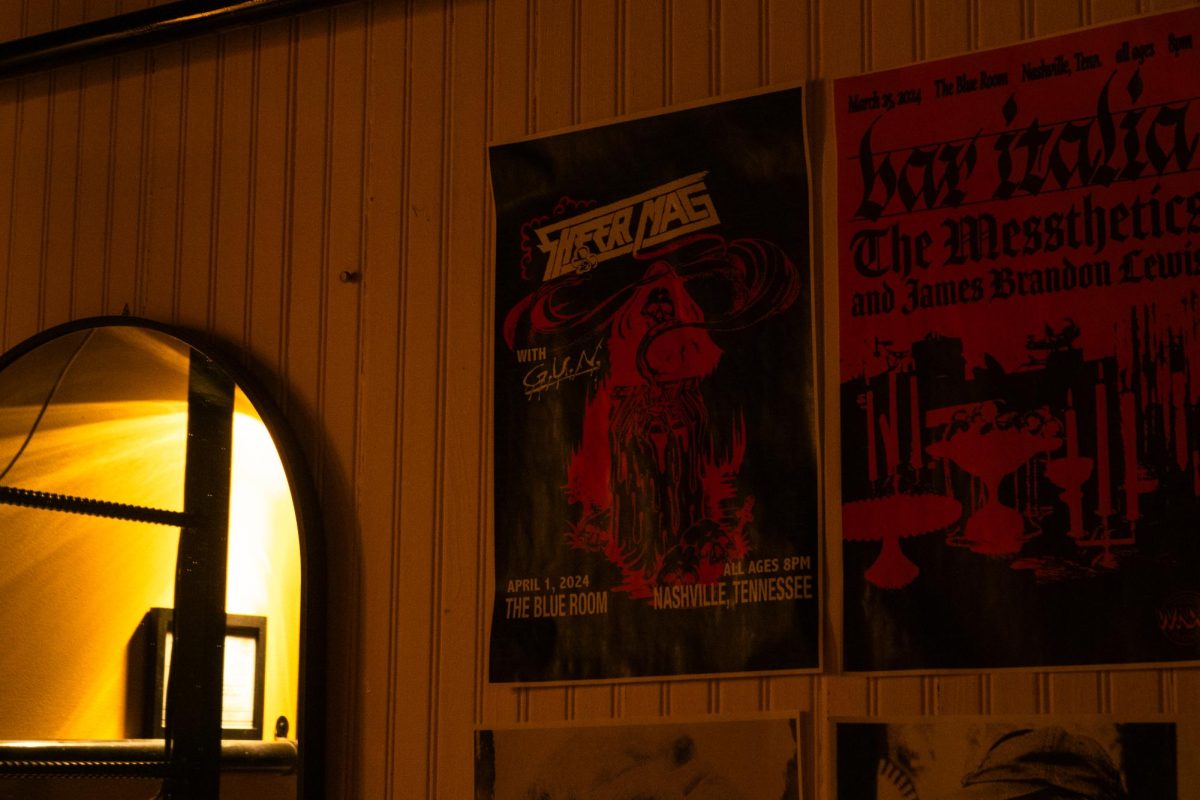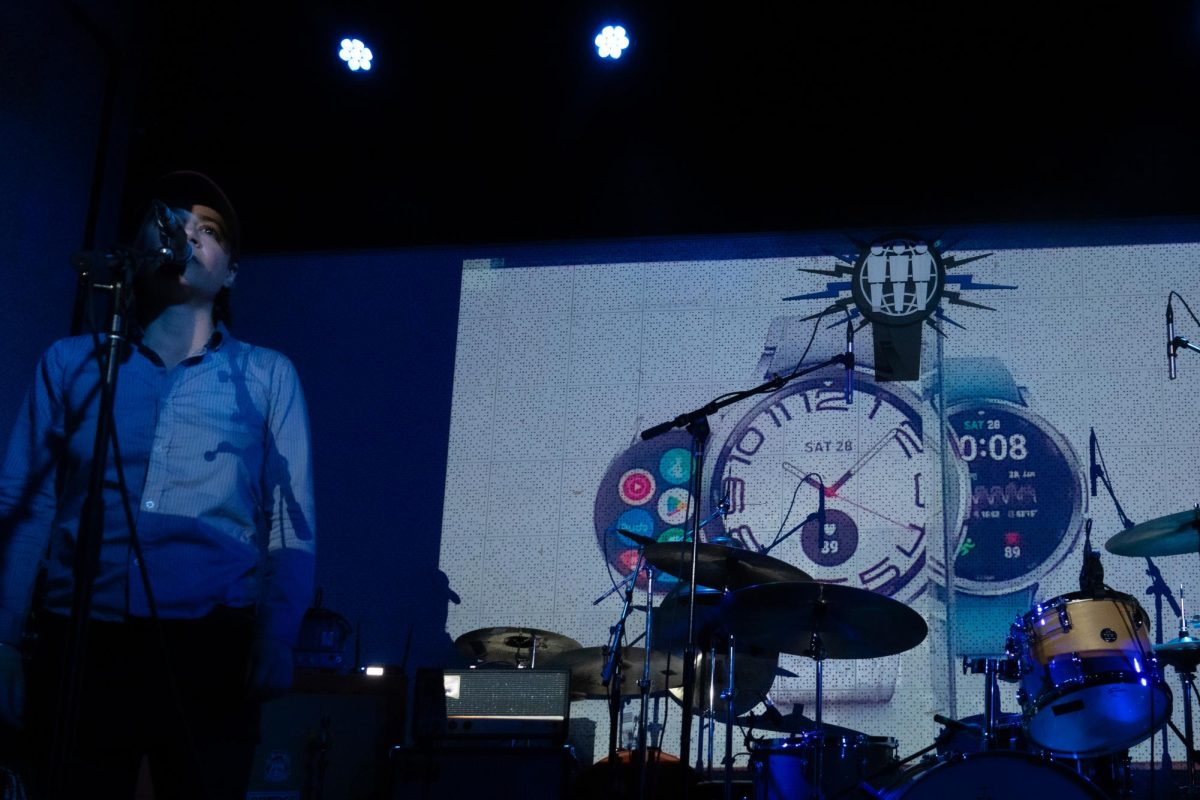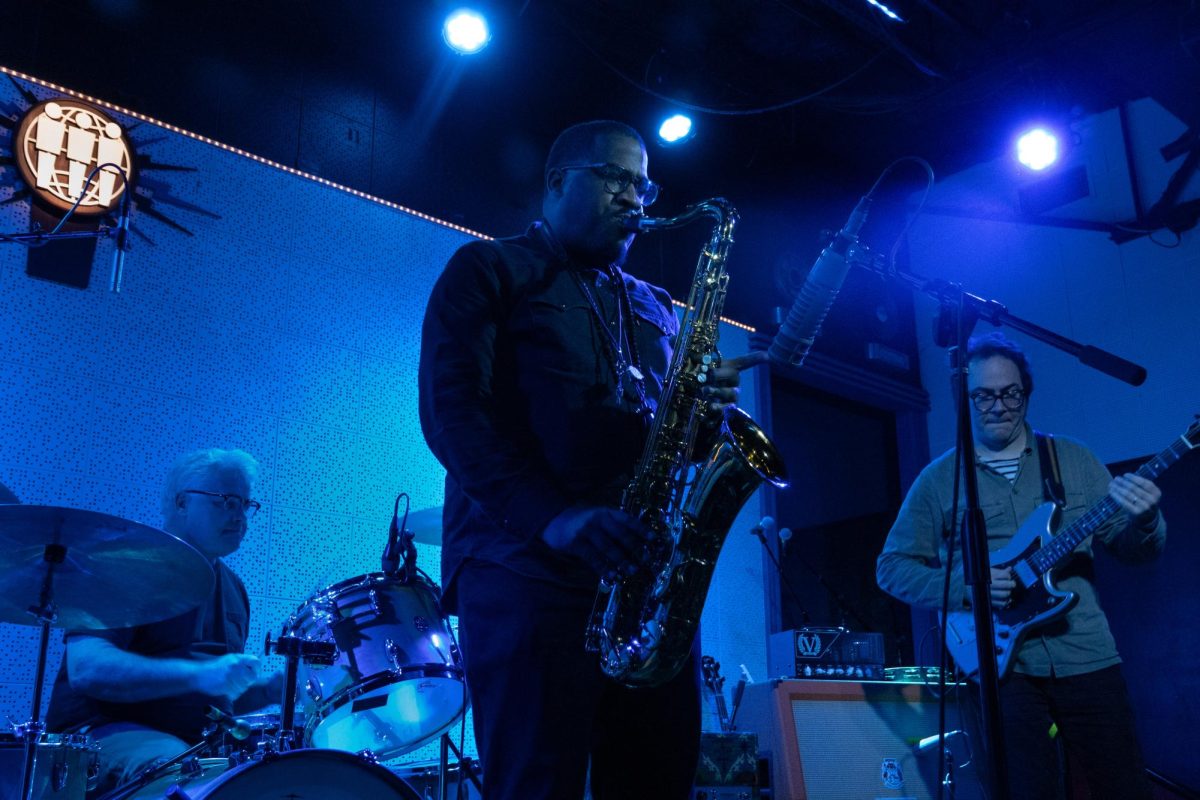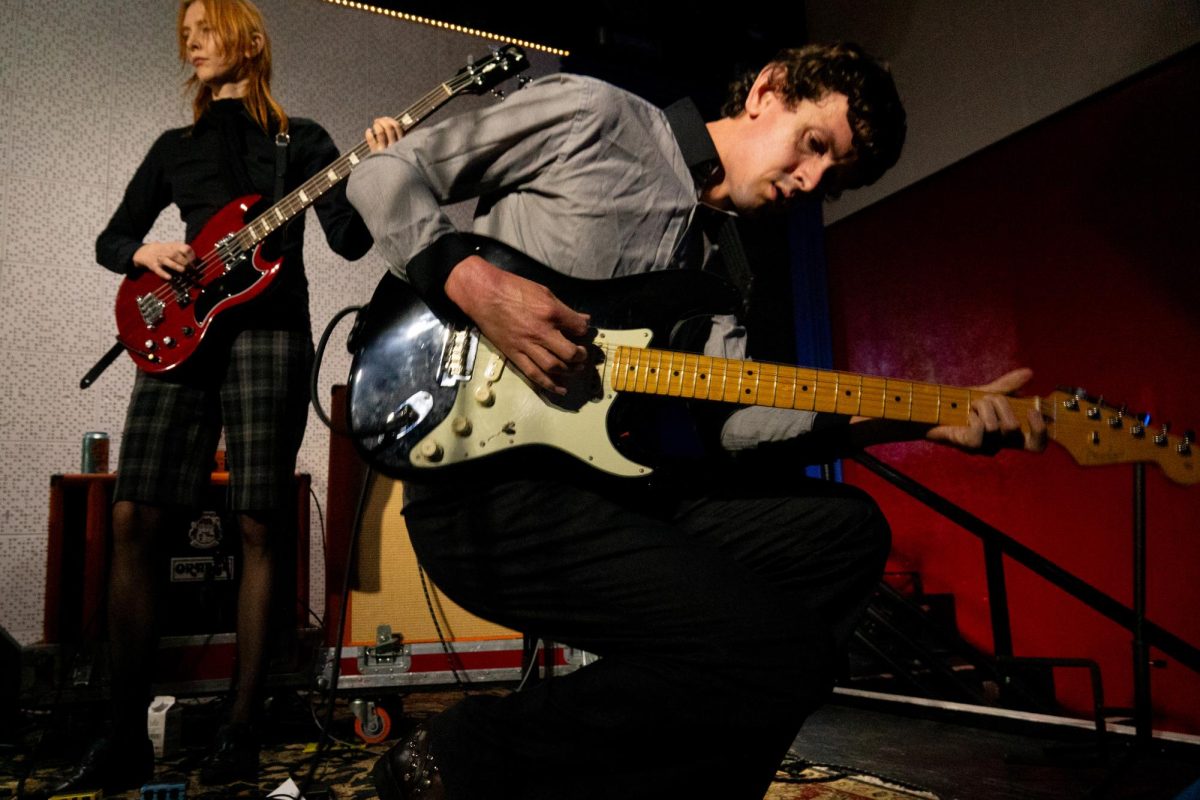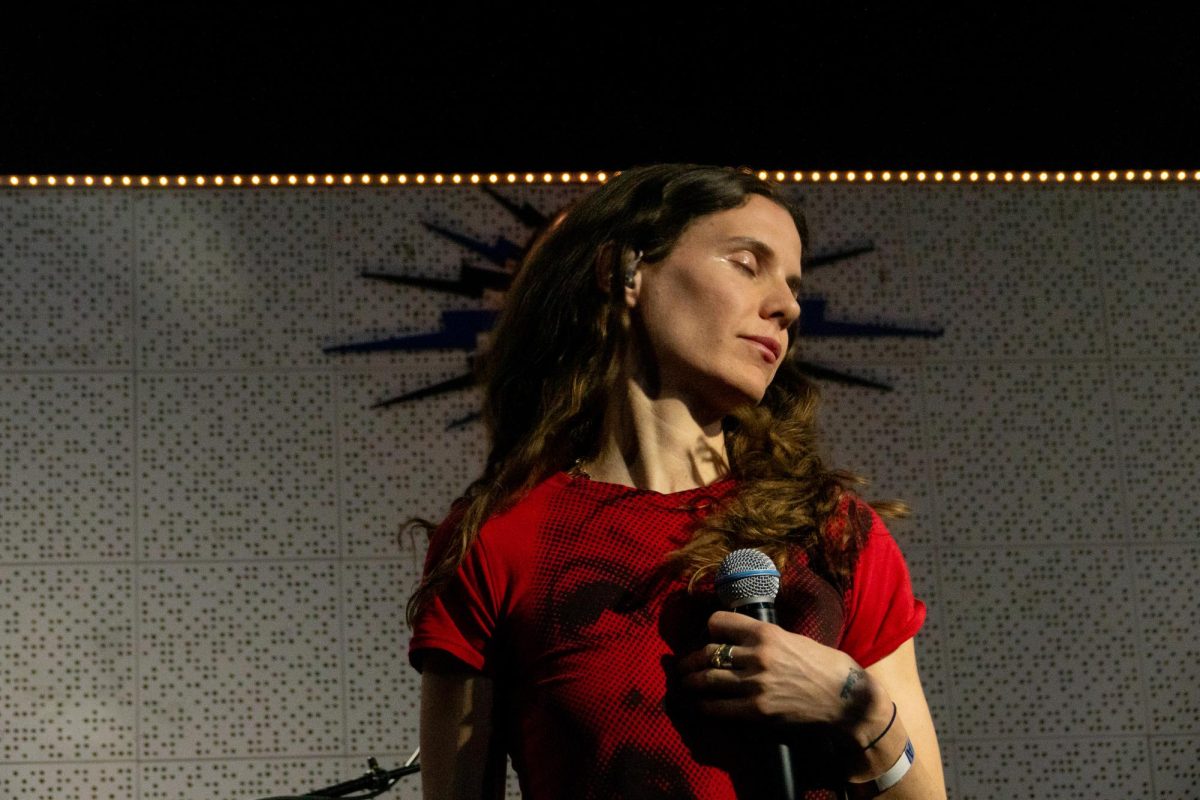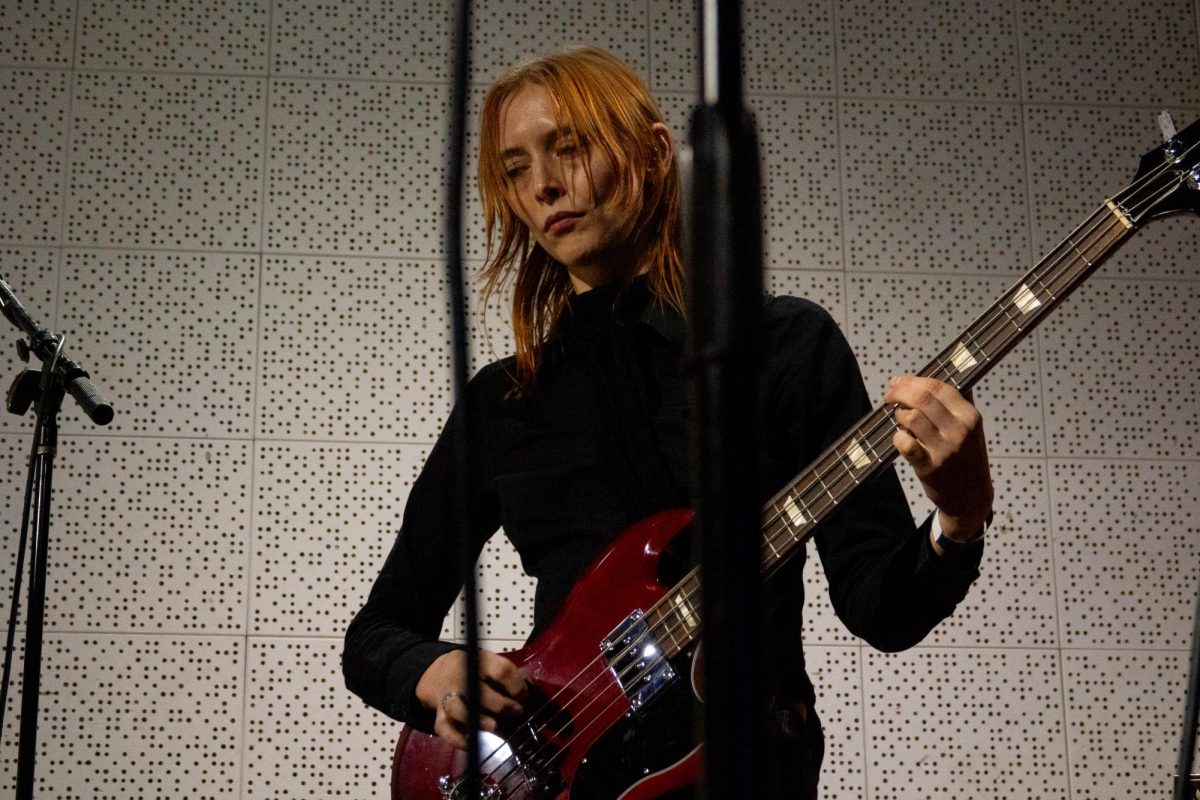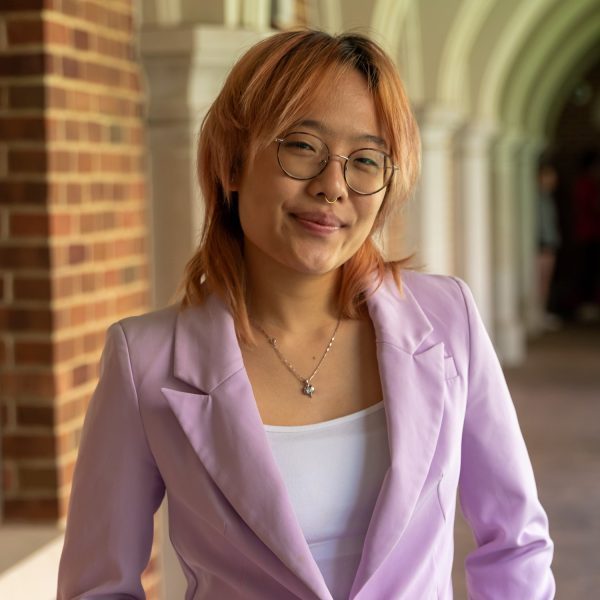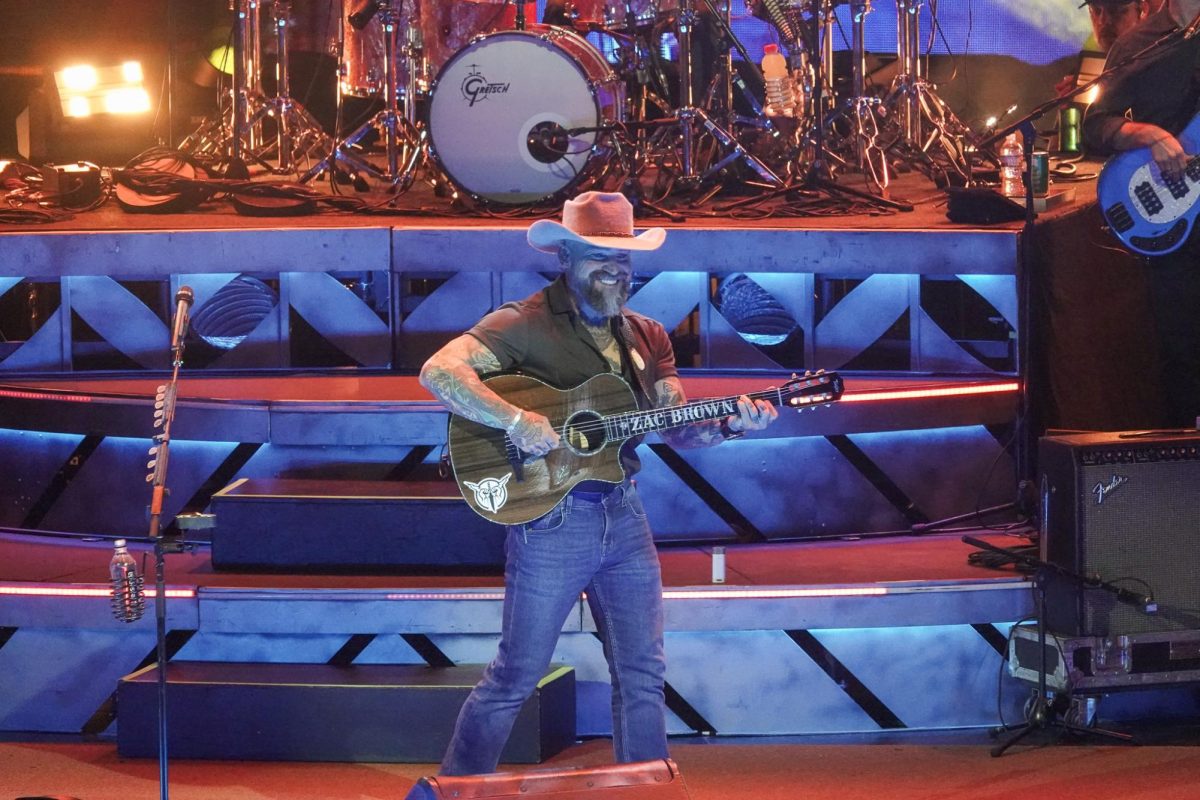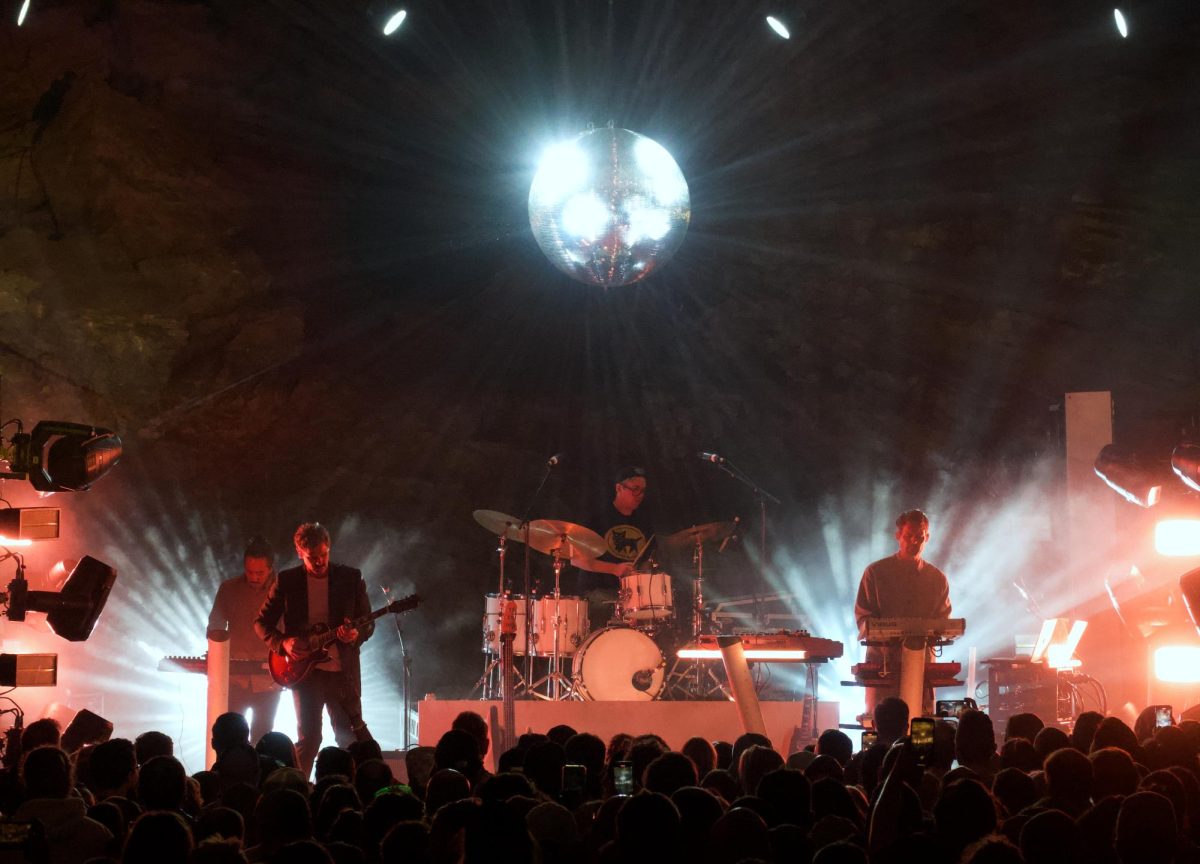In the Blue Room’s ticket-checking room, London-based rock group bar italia’s neon pink poster hung proudly, with the band’s name emblazoned on it in an imposing gothic font. Additional text promised the appearance of jazz punk trio The Messthetics, accompanied by saxophonist James Brandon Lewis. But when my concert companion and I waded into the venue’s ultramarine haze, we encountered an entirely different performer, who goes by the name great area.
You wouldn’t know it from a cursory Google search, but great area is the brainchild of visual artist and fellow Londoner Georgie Nettell. Nettell stood at the far edge of the stage while images cycled hypnotically over unused instruments and the back wall: grainy double-exposed cityscapes, collections of sleek smartwatches, young women smoking cigarettes and taking photos with their phones. Distorted samples played behind Nettell’s echoing vocals.
In between verses of her songs, Nettell turned to look at the video feed with the audience. The Bandcamp page for great area’s upcoming album “light decline” explains that the record has “a natural tendency towards sad,” but Nettell’s even gaze could have been mournful, displeased or something else entirely.
After her last song, Nettell left the stage without fanfare or a goodbye. Next came the Messthetics, composed of former Fugazi members Joe Lally and Brendan Canty, alongside guitarist Anthony Pirog. Pirog also collaborated with saxophonist Lewis for over a decade, who brought his Howard-trained prowess to Messthetics’ earnest and bombastic instrumental set.
The lights shifted abruptly to white when bar italia’s Nina Cristante, Sam Fenton and Jezmi Fehmi took the stage, accompanied by touring bassist Emilie Palmelund and drummer Liam Toon. Wearing stylish tops, pressed pants and shiny loafers, the band opened with “Friends,” from their second record “Tracey Demin.”
“They look like schoolchildren,” my companion remarked. “Murderous schoolchildren.” I agreed, imagining a troupe of prep school students who commit elaborate criminal plots by day and play woozy slacker rock tunes by night.
During songs like “calm down with me” and “rage quit” from “The Twits,” Cristante picked up her tambourine, swaying her body along to the percussive accompaniment. Throughout their set, Cristante, Fenton and Fehmi passed around the role of vocalist and plied familiar subject matter, like emerging from adolescence and disentangling from exes, with wry self-awareness (“I won’t bore you with the details,” Cristante sings in “twist”).
It’s easy to write bar italia off as simply pretentious, though the trio has attempted to explain that their aloof demeanor results from the fact that they’re just “kind of shy.” Cristante spoke to the audience sparingly, conferring thank you’s in a tone far meeker than her seductive singing voice.
I kept waiting for a crescendo that never came. In louder songs like “Nurse!” and “world’s greatest emoter,” the band edged on exaltation, filling the room with guitars that almost wailed and drum lines close to explosive. But whatever velocity the group built up always dropped off, as they retreated back to the comfort of muffled vocals and stretched-out chord progressions. No crash, no crest.
You can only have so many music critics call you an enigma before people will be clamoring to see the substance that underlies the style. The band seems to understand this, too, denouncing the label of “mysterious” in multiple interviews.
If bar italia’s angsty standoffishness really is a calculated gambit, it’s a tired, hollow one. But if they’re being genuine, I’m as interested as anyone to see if they’ll emerge from the miasma as a fully-formed alt-rock phenomenon.

